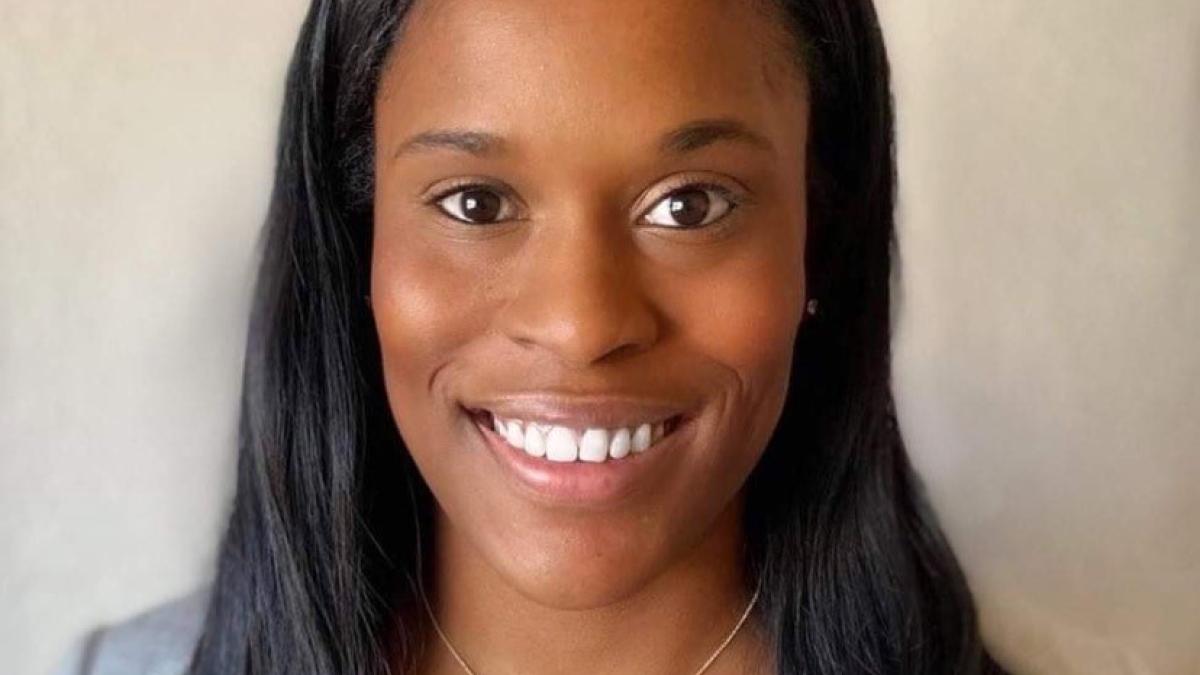Ashley Franco worked 10 years as a pharmacy technician while earning her bachelor’s degree in health sciences in 2015 and her Master of Science in the science of health care delivery in 2016 at Arizona State University's College of Health Solutions. Along the way she gained internship experience as a health coach for refugee women across the world and as a researcher on financial strategies for health systems, experiences that inspired her passion to help people improve their health.
Now, Franco will reach a new milestone in May when she earns a doctorate in pharmacy from Regis University in Denver. While she looks forward to using her training to improve the health of all her patients, Franco knows that her presence as a Black pharmacist will be an important part of making health care more equitable and improving health outcomes for her patients of color.
She knows because she has experienced it firsthand. She saw it while working in hospitals, when minority patients would seek her out for advice and information, and again during one of her rotations when a hospital staffer expressed delight upon seeing her as she did her rounds. “I remember she said, ‘I’m so happy you’re here. It’s so rare to see anyone from the clinical team doing rounds who looks like me,’” Franco said.
Franco also saw the rapport her own color can build while interning at Children’s Hospital Colorado in Denver. Part of Franco’s job was to review and update patients’ prescriptions and understand their medication needs before they were admitted to the hospital. One of her patients was a Black teen who she discovered was diabetic but wasn’t taking the prescribed meds because they were causing an upset stomach.
“Teenagers may have a tough time dealing with chronic health conditions, but we know if you don’t properly manage your diabetes, it can get worse,” Franco said. She offered the teen a solution — take the medication in smaller, more frequent doses with food to reduce the side effects. Franco could see the relief upon hearing the advice. “The patient opened up because they felt comfortable talking to me,” Franco recalled. “No one had ever explained those options before, and they said they were so appreciative.”
After graduation, Franco will immediately begin a PGY1 pharmacy residency as a clinical pharmacist at Denver Health Medical Center, working directly with the interprofessional clinical team to provide patient-centered medication therapy management throughout the hospital.
“I chose Denver Health for my residency because it’s a safety-net hospital, so you have the opportunity to serve a lot of low-income and minority patients,” Franco said. “If I’m working on one of the clinical units and a person of color is receiving care, that patient will see someone on staff who looks like them, and that will hopefully make it easier for us to relate to each other, and they will know I am an advocate for their care.”
Along with engendering trust, Franco knows that she serves as a role model for young people of color who may someday consider a career in health care.
“I’ve heard people say to children, ‘Hey, look, Ashley can do this, and you look just like her, so you can do this, too,’” she said.
Finally, Franco sees herself in a position to address racial bias by simply doing her work in a highly skilled, professional job. “I’m here to break down barriers,” she said. “I think that makes it all the more important for me to go out and make a difference, advocating for myself, for other Black pharmacists and for minority patients in general.”
Franco spoke with the College of Health Solutions about her ASU experience.
Question: How did the College of Health Solutions help you prepare for where you are now in your career?
Answer: During my undergrad work, ASU taught me a lot about organization and how to be a better student overall. My path wasn’t the easiest, and I had some struggles early on, but the way ASU is set up, if you struggle, someone is there to help you get back on track. I learned to keep myself motivated and be prepared for what’s coming next.
I also earned my master’s degree at ASU, and I think what I valued most was that the program taught me professionalism. This is a small example, but it’s something that I still embrace to this day. We had to wear business casual dress for class at ASU, and I still do. Professors dress up for class every day, so students should, too. It shows the level of importance we attribute to our classroom practices and our future as health care professionals.
Q: What is a favorite takeaway you picked up during your years at ASU?
A: I got my master’s degree in the science of health care delivery which I see as a cross between a master’s degree in public health and an MBA. It teaches you the intricacies and inner workings of a hospital — concepts you don’t learn when getting your doctorate in pharmacy or going to med school. I loved it because I learned about all of the different roles that health care professionals play and how impactful people can be, even when they aren’t standing at the forefront of providing direct patient care.
Q: What advice do you have for someone who wants to make a difference in the world of health?
A: My biggest piece of advice is to never think that the difference you want to make is too small. We all get stuck thinking that when we want to make a difference, it has to be something large or groundbreaking, something that’s never been done before. But then I go back to my example of the teenager at Children’s Hospital Colorado who just needed someone that could relate to their experience to help them figure out how to take their medication in a way that would minimize the upset stomach and other side effects. Small things like that can make a world of difference for another person.
More Health and medicine

The surprising role of gut infection in Alzheimer’s disease
Arizona State University and Banner Alzheimer’s Institute researchers, along with their collaborators, have discovered a…

ASU, University of Wisconsin partner to empower Black people to quit smoking
Arizona State University faculty at the College of Health Solutions are teaming up with the University of Wisconsin to…

New book highlights physician wellness, burnout solutions
Health care professionals dedicate their lives to helping others, but the personal toll of their work often remains hidden.A new…
